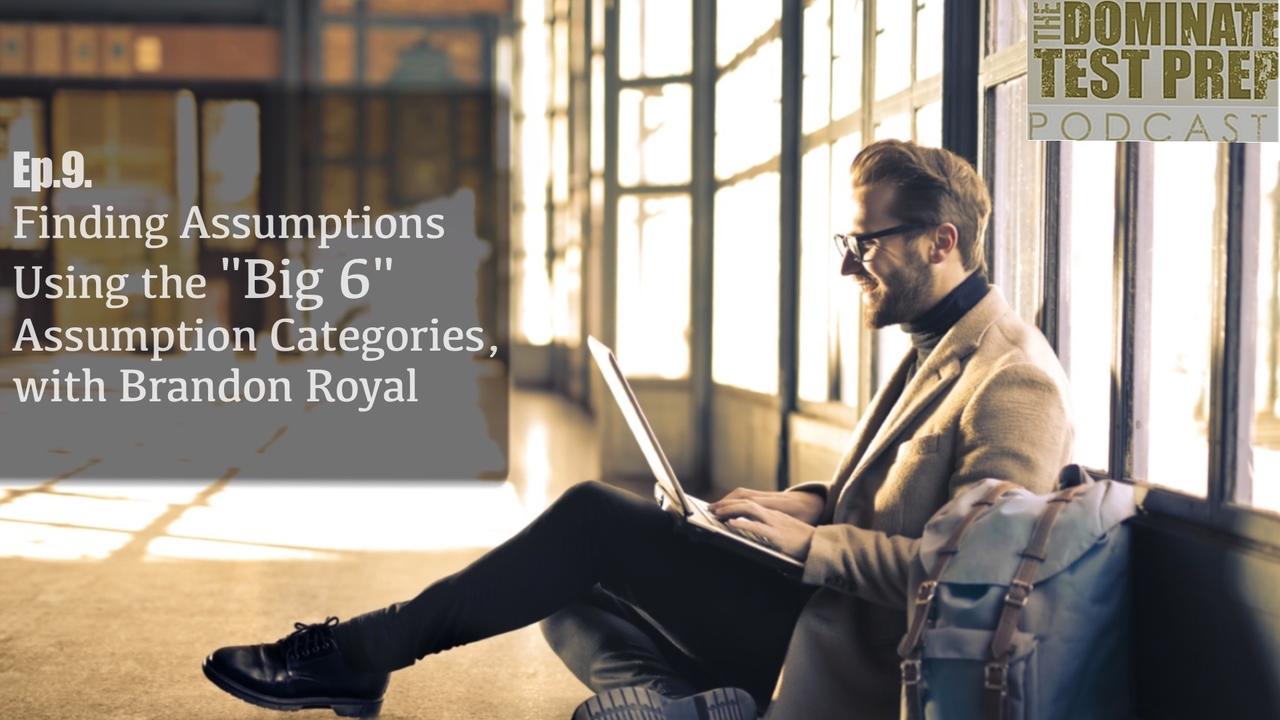Finding Assumptions Using the "Big 6" Assumption Categories [Ep. 9]

Brandon Royal, Ace the GMAT author, joins the podcast this week to share his expertise on an important logical reasoning skill that comes into play on numerous standardized tests — identifying assumptions.
He has categorized logical fallacies into six common assumption categories, and he breaks them down for you in an easy-to-understand way so that you’re better able to tackle reasoning-related questions on your exam.
Listen to it here:
Specifically, Brandon covers:
- The prep strategy of working “buckets of problems,” and why it’s a beneficial way to engrain concept understanding;
- Classical argument structure vs. classifying problems according to assumption categories, and pros/cons of each approach;
- Comparison/analogy assumptions, with examples;
- Cause & effect assumptions, with examples;
- Representativeness assumptions, with examples
- Implementation assumptions, with examples
- How to apply these assumption patterns to a typical “Analyze an Argument” essay prompt, including what a typical into paragraph might look like and how many body paragraphs are preferable;
- And more!
RESOURCES
If you’re looking for a generic book to help you improve your logical reasoning skills for any standardize test, consider Brandon’s The Little Blue Reasoning Book.
If you’re studying for the GMAT specifically, we really like Brandon’s Ace the GMAT: Master the GMAT in 40 Days.
A DOSE OF MOTIVATION
“Logic cannot comprehend love; so much the worse for logic.” ― N.T. Wright
As always, be sure to subscribe to the podcast so that you're alerted when new episodes drop each week. If you like what you hear, please write a favorable review. And if there's a topic you want us to cover in an upcoming episode, let us know. We'll do our best to work it in. Thanks for listening!

